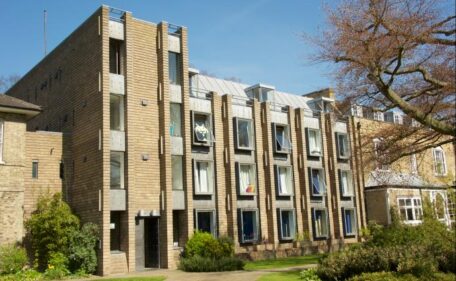About accommodation at Darwin
We can usually house you for the duration of your course, and offer rooms to suit most budgets.
Living in College allows you to fully participate in Darwin life. There are a range of accommodation options both on the College site and nearby.
Whether you’d prefer to live in a single room, shared flat or studio, we’ll aim to find something to meet your needs. You can apply for this once you have accepted your offer.
Continuing students are invited to apply for accommodation each spring for the coming academic year.
Find out more about living at Darwin with our handy Accommodation Guide.



